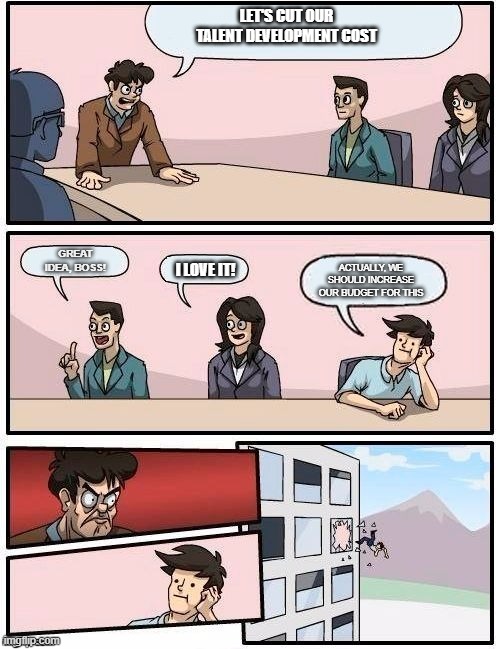How important is it for you to be able to influence your boss? Managing your boss can help you find common ground with your manager, build a strong and trusting relationship, and help you showcase your leadership skills. Navigating hierarchical structures and influencing decisions from the bottom up can be challenging in any cultural setting, but it’s even more so when one considers cultural nuances and expectations. When it comes to Filipino work culture, there are specific challenges to consider. In this article, we will look at how to effectively manage in a Filipino setting, keeping in mind the rich cultural tapestry that shapes workplace dynamics in the country.
The Power-Distance Index and Filipino Culture
There is often a high power-distance between Filipino bosses and their team members. According to Geert Hofstede’s research on cultural dimensions, the Philippines scores high on the Power Distance Index (PDI). This means that in Filipino culture, there’s a significant amount of respect given to those in authority, and hierarchical relationships in society and organizations are accepted and expected. This means that managers consider disagreements from their team members as a form of upfront. Team members on the other han d believe the same. This kind of power distance can hinder the “managing up” process since subordinates may feel it’s out of place to question, suggest, or disagree with their superiors. This kind of situation often leads to resentment, frustration, and the formation of pity parties. Remember those over-lunch talks with your friend about how dense your boss is for making those bad decisions that you are helpless to do something about?
d believe the same. This kind of power distance can hinder the “managing up” process since subordinates may feel it’s out of place to question, suggest, or disagree with their superiors. This kind of situation often leads to resentment, frustration, and the formation of pity parties. Remember those over-lunch talks with your friend about how dense your boss is for making those bad decisions that you are helpless to do something about?
Superior-Subordinate Mindset
The high PDI manifests in a strong superior-subordinate mindset. Employees, especially those in junior positions, might feel that it’s inappropriate to make suggestions, express their ideas, or even disagree with their manager’s decisions. This might lead to missed opportunities, as employees might hold back innovative ideas or refrain from pointing out potential pitfalls in a strategy. Whenever I get to speak at conferences about strategic HR, I hear HR practitioners ask how they can make their bosses listen to them. I often hear the frustration in their voices when they ask this question.
Tips for Establishing a Collaborative Relationship with Your Filipino Boss
Know Your Boss: It helps when you know what makes your boss tick and what sets them off. Here are a few questions you should be able to answer:
-
- What are his/her communication preferences?
- What are the values he/she brings to the workplace?
- What are her/his pet peeves?
- Is he/she a big-picture or detail-oriented type of boss?
Setting and Leveling Expectations: One of the very first things I do when I join a company is to Initiate a conversation with my boss about my role and responsibilities. I try to understand their expectations and I communicate mine. This provides a clear framework within which we can operate confidently. One of the few things I clarify is the boss’s expectations when I disagree with what they say. I have never heard a single boss tell me to keep my ideas to myself. One of my former bosses said that he expected me to express my disagreement but communicate it with respect. That’s why every time I had to disagree with him, I told him I respectfully disagree 😊
Ad: Develop Your Assertiveness and Persuasion Skills
Build a Business Case for Your Proposal: It helps that you can speak the business language. When you have recommendations, especially ones that cost money, establish a compelling reason for it. It can be in terms of threats or opportunities, and potential gains from implementing your proposal.
Active Listening: Ensure you listen actively to your boss’s perspectives. This demonstrates respect and understanding, which is crucial in a high PDI culture.
Constructive Feedback: When disagreeing with a decision, approach it as feedback rather than direct opposition. Start with the positives, be specific about your concerns, and suggest alternative solutions. It is particularly important to avoid challenging your boss in front of others. It is best to find an opportunity to share your feedback when it is just the two of you unless they invited the feedback during a group meeting.
Building Trust: Trust is a foundational element in Filipino culture. Take time to foster a genuine relationship with your boss. Attend team-building events, lunches, or casual get-togethers. The more you get to know each other outside the strict office setting, the easier it will be to communicate openly. Some people may balk at this idea saying that they did not go to work to find friends or to be friendly with their bosses. Well, building a trusting relationship with anyone, especially with your boss has been proven to be an effective way to enhance the quality of communication and collaboration, so why not?
Seek Professional Growth to Build Credibility: Engage in workshops or training that help build skills in negotiation, communication, and leadership. As you grow professionally, you’ll be better equipped to manage effectively. Building your confidence to speak up or present to the boss is not something that will just happen, especially if you come from a conservative background where authority is not just followed but revered. Learn some persuasion skills. Develop your ability to communicate and negotiate. Also, note that your boss will most likely listen to you more and you have built up credibility through proven performance and expertise in your field of work. You may not have to put much effort into convincing your boss when they go to you for consultation.
Ad: Lead Your Organization Towards Change
Seek Mentorship: Find someone within the organization who can guide you in navigating workplace dynamics. They can offer invaluable insights and might even mediate or advocate on your behalf when necessary. Find people who have the boss’s ears. Ask them about what works with the boss so you can custom-fit your communication strategy based on their tips.
Ad: Strengthen Your Coachability Quotient
Being Filipinos doesn’t mean we have mastered the navigation of the local workplace culture. When you hold the mirror too close to your face, you don’t see everything that you need to see. I hope that piece of writing helps you take a step back, whether you are an individual contributor or a leader from the middle, reflect on your dynamics with your boss, and develop a strategy on how you can exercise leadership even when you don’t have higher authority. Leadership in the first place is about influence, not authority.







